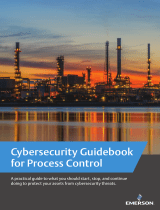
The 4 worst cybersecurity habits and
best practices you need to kick them
Copyright © 2022 Zyxel and/or its affiliates. All Rights Reserved.
Your guide to kicking dirty cyber
hygiene habits
Practice Good
Cyber Hygiene
How to clean it up?
.
Don’t overshare personal or business information
.
Don’t accept friend requests from anyone you don’t know
.
Don’t use social media apps for personal use on work devices
Dirty habit #4 Overlooking social media risks
of SMBs see employees’
social media use as a
cybersecurity threat
56
%
Source: Cyber Readiness Institute
How to clean it up?
.
Keep all software, firmware, browsers, and apps up to date
. Accept updates as soon as they’re available
. Turn on automatic updates so you can always get them from
the original source
. Don’t fall for scams telling you to download urgent updates
Dirty habit #3 Ignoring software updates
of survey respondents
‘sometimes, rarely,
or never’ install them
31%
Source: National Cybersecurity Alliance
How to clean it up?
.
Open links and attachments ONLY from trusted sources
.
Check the sender’s details closely – for example, does the email
address’s domain look legit?
.
Be wary of requests for personal information and offers that are too
good to be true
.
Use a firewall as a shield between your computer and an attacker to
prevent external attacks
Dirty habit #2 Letting phishing attacks slip through
of successful cyberattacks
involve phishing
Up to
9
0
%
Source: Verizon
of small businesses haven’t
implemented multi-factor
authentication
Over
5
0
%
Source: Cyber Readiness Institute
Dirty habit #1 Not securing access to your network
. Enable multi-factor authentication (eg, PINs, mobile verification
codes, biometric identifiers & secure tokens)
. Set up different levels of access authority and keep access records
. Set limits and controls for accounts with privileged access
. Use temporary security credentials for critical data – NOT access keys
. Use a VPN to mask your IP when surfing on public networks or
connecting to the office
How to clean it up?

